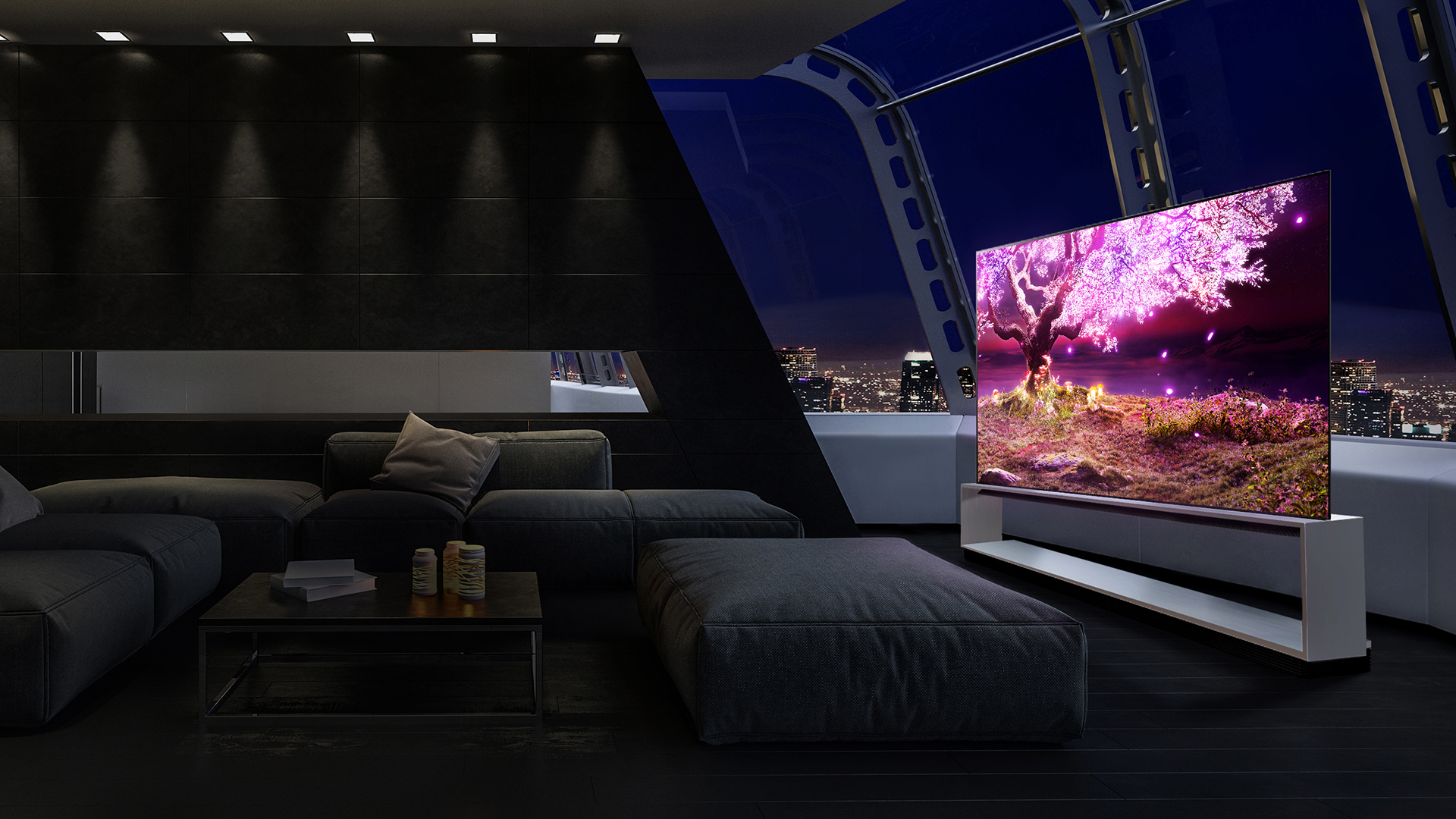
LG has announced an upgrade to its OLED TV technology, which it claims will make its class-leading television technology even better under the name OLED.EX
While OLED technology underpins some of the best TVs on the market, it can still be darker than some of its counterparts – but by using a new compound in the production of the OLED itself, LG claims it can improve brightness by 30 percent.
This involves using deuterium, a substance that’s similar to hydrogen in atomic structure but uses an additional particle (hence the nickname of ‘heavy water’ when talking about deuterium oxide). This compound replaces hydrogen in the creation of OLED TVs, enabling an increase in brightness.
LG is also adding in new algorithms to stabilise the OLED pixels used in its TVs, allowing the TV to predict the lighting patterns of millions of pixels and fire them precisely, meaning that the dark and bright areas of the scene will be more pronounced.
This extra technology will also enhance LG’s design capabilities, meaning that the bezel around the edge of the display can shrink down to 4mm – while 6mm (the current size) is hardly overbearing, it moves LG’s OLED TVs closer to the ‘zero bezel’ design goal that looks more attractive when placed in a living room.
The new OLED.EX TVs are likely to get a demonstration at CES 2022, although in what capacity is unclear. The technology isn’t set to enter production until April 2022 at the earliest, so it could be used in the forthcoming (but unannounced) C2 OLED TVs that we expect to launch later in the year.
LG hasn’t confirmed whether this refined manufacturing process will add anything to the cost of its OLED sets at the time of writing – TechRadar has contacted the brand to find out.
What’s deuterium?
Used in fusion reactors, deuterium is a commonly-used organic compound that’s derived from sea water. As mentioned, it’s known as ‘heavy water’ and has been used for years in scientific research as well as consumer electronics.
As the cost of production has reduced, LG says it’s worked out a way to derive deuterium and apply it to its OLED TV creation – clearly a threshold of cost effectiveness has been breached as the South Korean brand seeks to improve the quality of its OLED displays.
Seen for years as the ultimate in TV display, OLED TVs have been under threat from the likes of QLED displays from Samsung – which led to the latest 8K QLED set dethroning an OLED from the top of our best TV list.
Will this advance in display technology make the difference? It’s hard to tell from a simple release, but rest assured we’ll be pushing this through our rigorous testing procedure to find out as soon as possible
- Should you buy an OLED or QLED TV?






